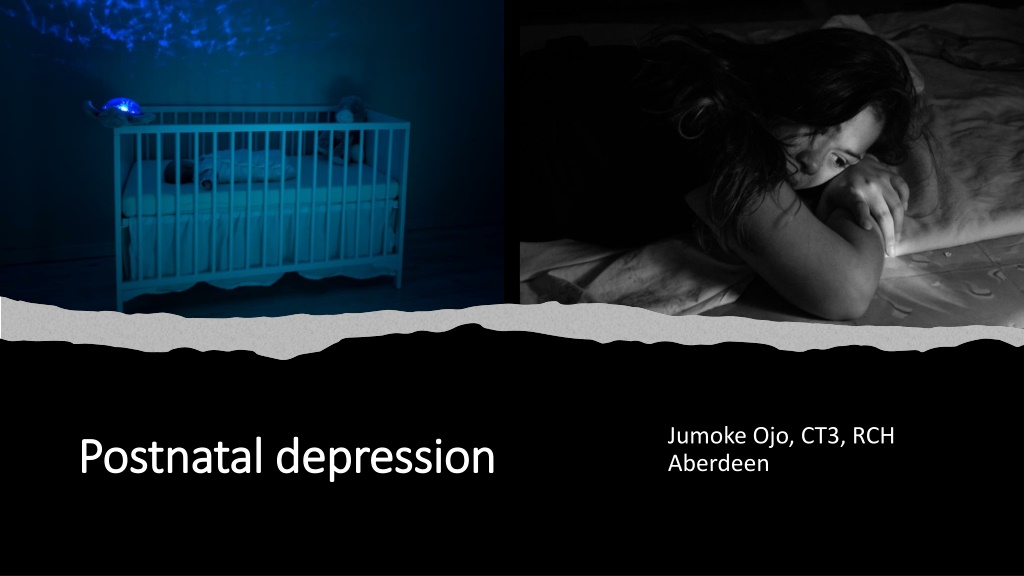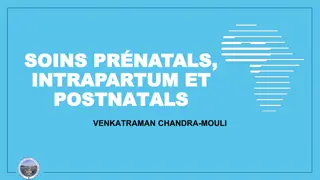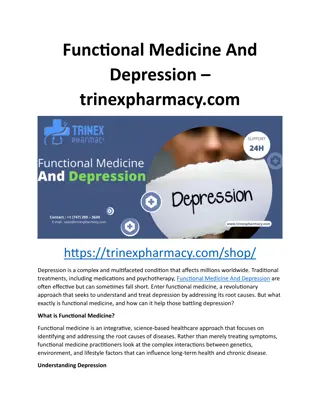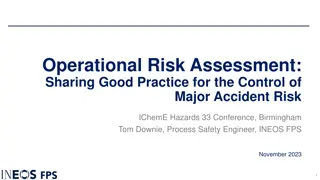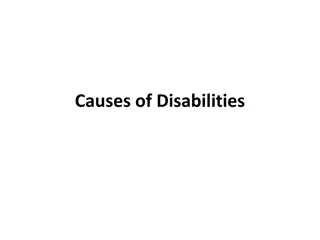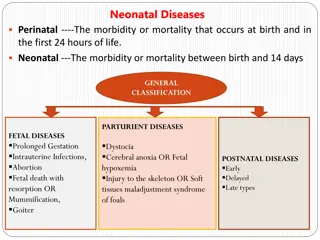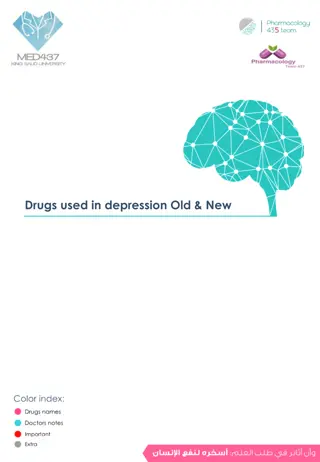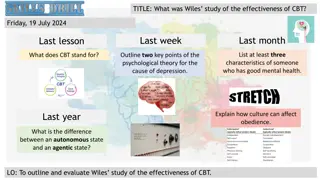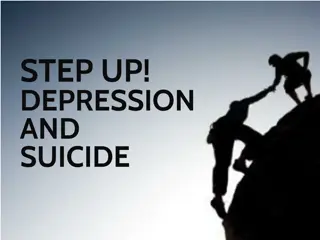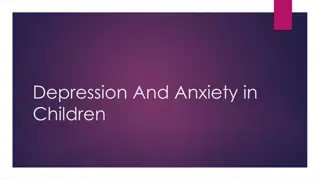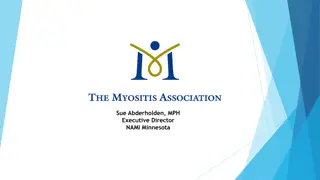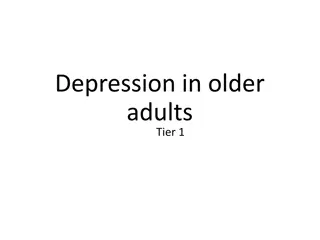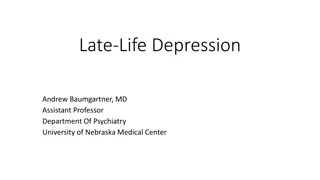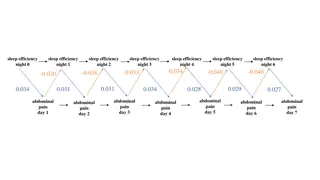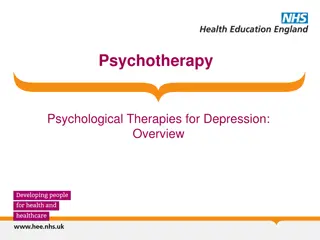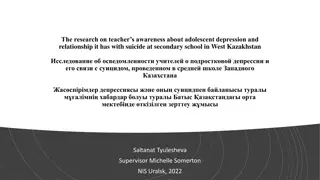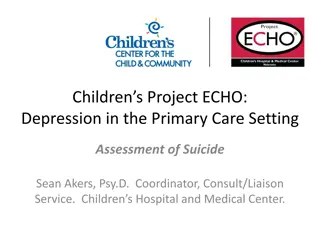Understanding Postnatal Depression: Risk Factors, Symptoms, and Assessment in a Case Study
This case study revolves around Rachel, a 36-year-old woman experiencing postnatal depression. She exhibits symptoms of low mood, guilt, sleep disturbances, and lack of appetite. Risk factors including her past history of depression, family mental health background, and lack of sibling support are discussed. Additional symptoms commonly seen in patients with depression, such as delusions and hallucinations, are absent in Rachel. Important questions regarding risks in this patient are explored, shedding light on potential avenues for assessment and support.
Download Presentation

Please find below an Image/Link to download the presentation.
The content on the website is provided AS IS for your information and personal use only. It may not be sold, licensed, or shared on other websites without obtaining consent from the author. Download presentation by click this link. If you encounter any issues during the download, it is possible that the publisher has removed the file from their server.
E N D
Presentation Transcript
Jumoke Ojo, CT3, RCH Aberdeen Postnatal depression Postnatal depression
Presentation Rachel is a 36-year-old woman Gave birth to her baby 4 weeks ago This is her first pregnancy Husband mentions she has been very tearful and emotional Worries that she is not caring for Brian as she previously was initially Has seen the GP who has now referred her to mental health services
What do you What do you want to know want to know from Rachel from Rachel about her low about her low mood? mood?
Answers Started about two weeks after having her baby. She feels very low, couldn t be bothered to do anything for herself, feels tired all the time, finds it difficult to sleep; she sleeps at midnight and wakes up at about 3am and can't go back to sleep. Feels very guilty about not being able to care for Brian Cannot concentrate on tasks, and no appetite Has no thoughts of ending her life
What risk factors would you want to ask about in this patient?
Answers: She had depression when she was 23 years old following the death of her mum. She was managed with SSRIs Her mother had depression severally and eventually ended her life via an overdose She has no siblings Pregnancy was planned, and went smoothly including delivery Spouse is very supportive She initially felt bonded to Brian but not anymore No financial or social problems
Any other symptoms you would like to ask about? Hint: Symptoms that can also be seen in patients with depression that can help assess severity?
Answers No delusions, No hallucinations No belief that thoughts or actions are being controlled
Risks!! Risks!! Consider what questions you would like to ask about risk in this patient
Answers Risk to self: Took an overdose in the past when she was depressed. Currently has no plans, as she cannot bear the thought of baby Brian being without a mother Risk to others : Absolutely no thoughts of harming baby Brian or anyone else
A quick summary on postnatal depression Postnatal depression (PND) is a depressive episode that happens after childbirth and occurs in 10 -15% of women within 6 months of having a baby. Symptoms are similar to symptoms of depression however; it may also include worries about the baby and difficulties caring of the baby. Some mothers can also additionally have anxiety symptoms, or psychotic symptoms, and some could have thoughts of ending their life The Edinburgh Post natal depression scale is a scale that can be used to as a screening tool to identify women who may be depressed and may benefit from follow up care.
A quick summary on postnatal depression Risk factors include: Personal or family history of depression Older age, Single mother Unwanted pregnancy Social or financial stressors Previous postnatal mental illness
Management Management is usually Bio-psycho-social: Medication Psychological support Social support if indicated.
Early identification and management of postnatal depression is key in reducing morbidity and mortality from Postnatal depression
Further reading: 1. RCPsych documentation on postnatal depression: https://www.rcpsych.ac.uk/mental-health/mental- illnesses-and-mental-health-problems/post-natal-depression 2. NICE guidelines for managing postnatal depression :https://cks.nice.org.uk/topics/depression-antenatal- postnatal/management/ 3. Edinburgh Postnatal Scale: EPDS-Questionnaire.pdf (cope.org.au)
